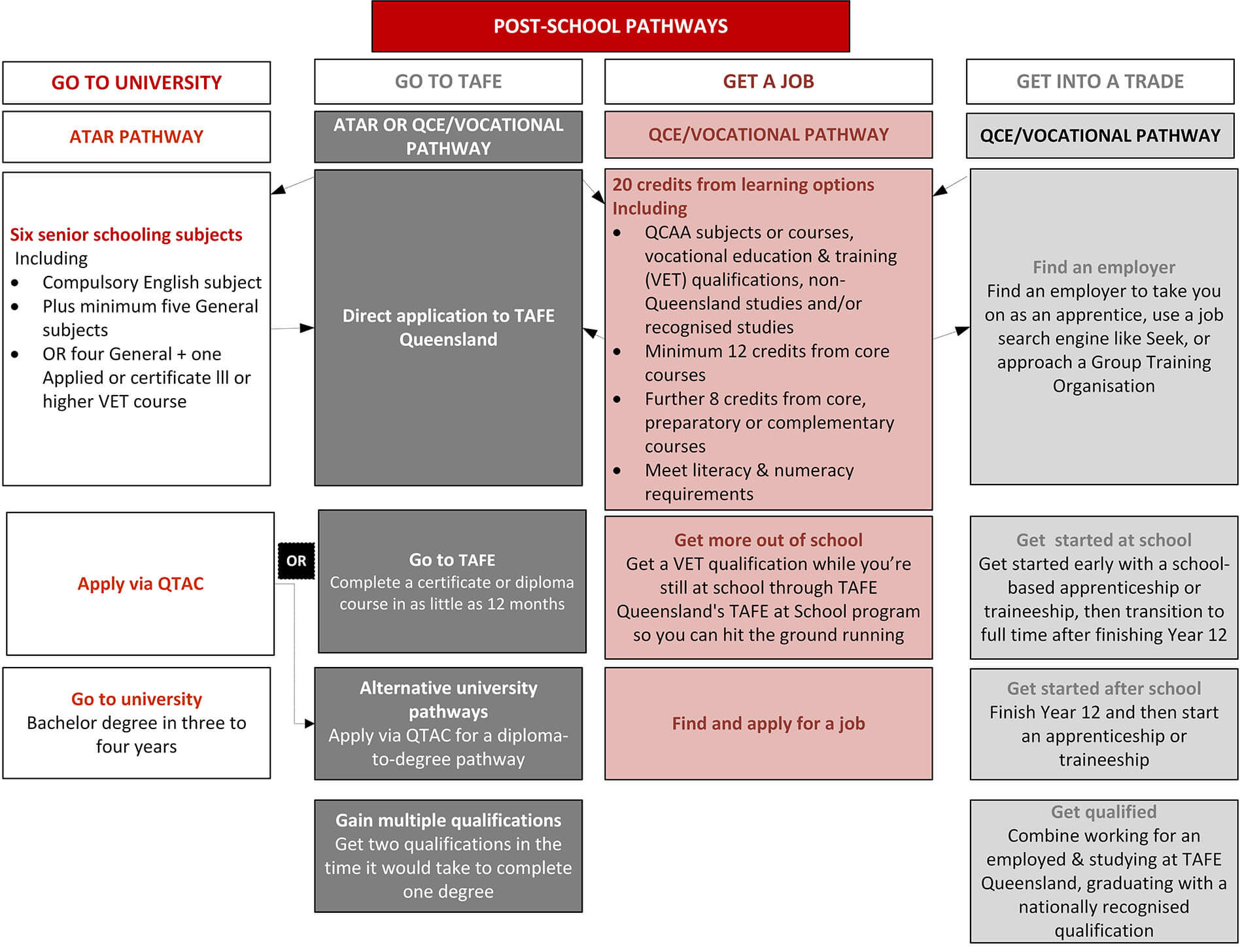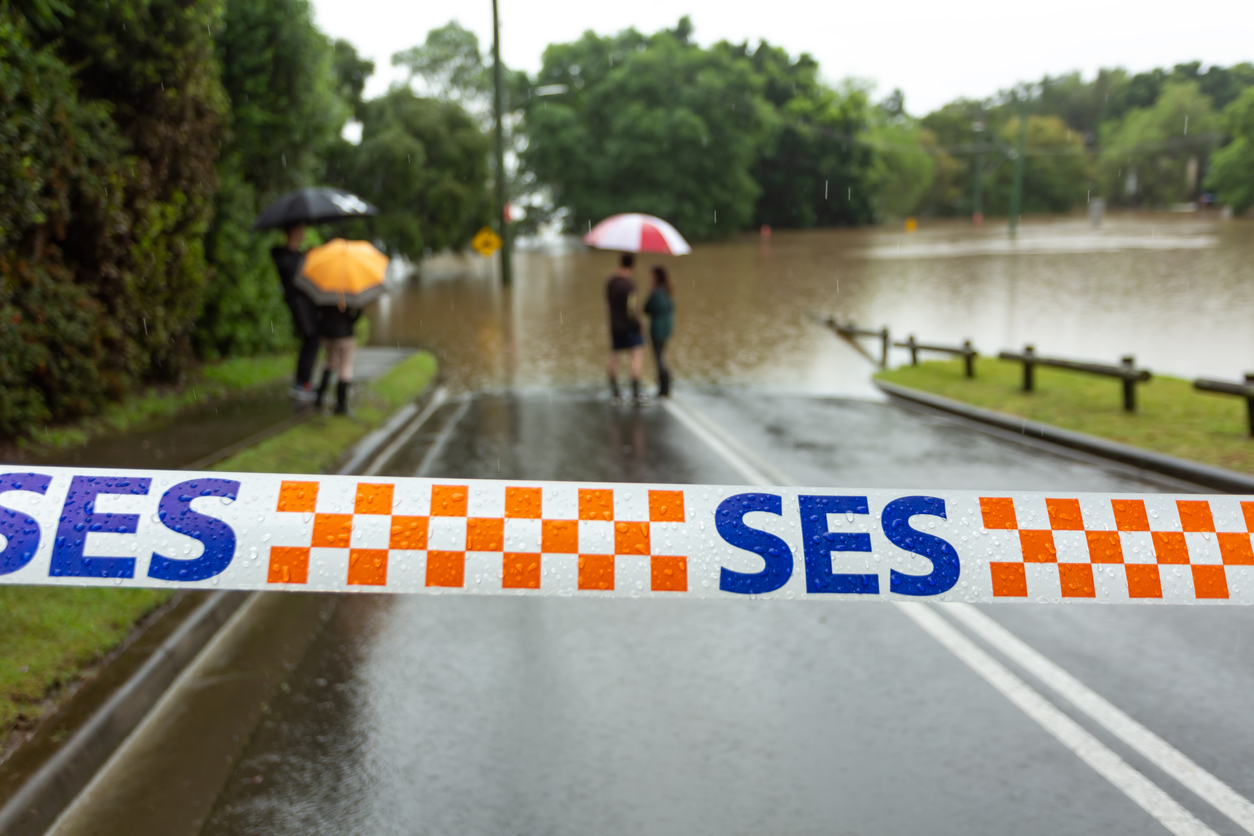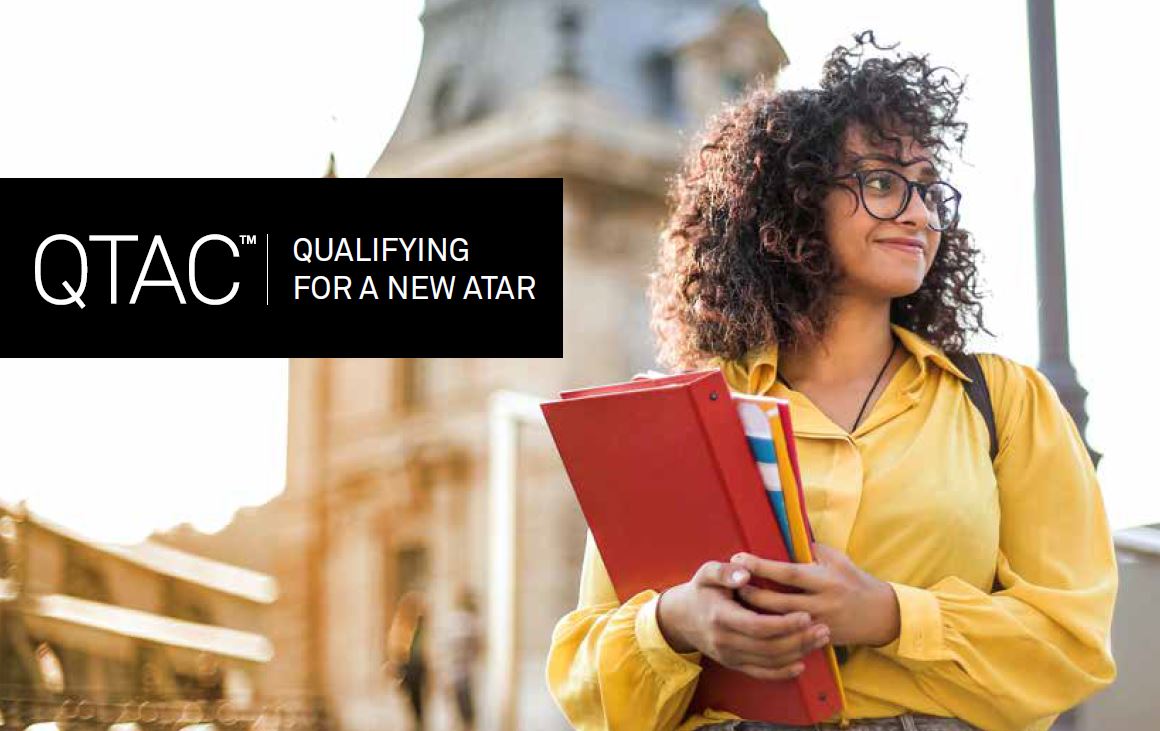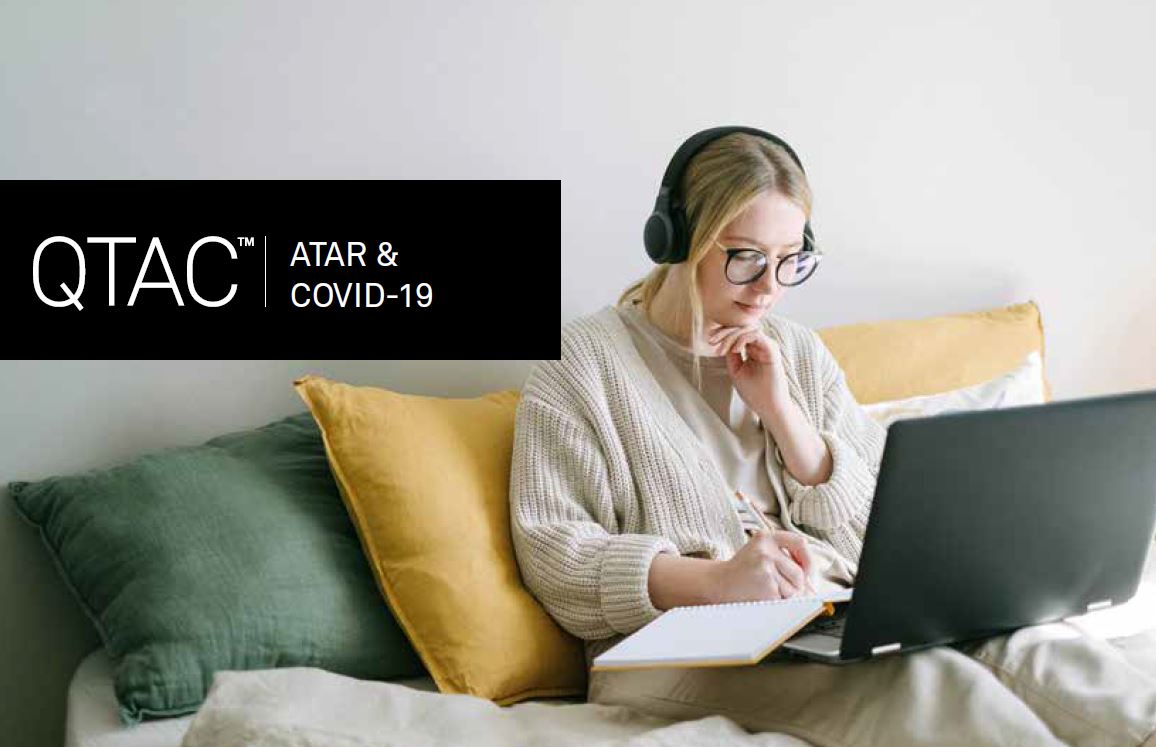Year 10s – set your compass now
It is SET Plan time again, when year 10 Queensland students begin to develop their Senior Education and Training (SET) Plans. Schools will be working with students and their parents/carers to help them plan their senior studies and to select subjects for their years 11 and 12.
Developing a SET Plan helps students think about their education and further education and training and career goals after Year 12. It makes sure they structure their learning in Years 11 and 12 around their abilities, interests and ambitions and helps them map their pathway towards a Queensland Certificate of Education (QCE) and post-school pathways. The flowchart below summarises the post-school pathways.
School students’ SET Plans need to be finalised by the end of Year 10 and are a vital component of students’ senior studies. The SET Plan is agreed upon by the student, their parents/carers and the school with a copy of the student’s SET Plan retained by the school as an official record.
Year 10s – how can QTAC help you?
Choosing what subjects to do get your QCE, or to help you get the ATAR you are aiming for, is a very personal decision and there are many factors to consider. QTAC does not advise students on what senior subjects they should be doing and we encourage students to make use of advice from those people who know them well – their teachers, careers guidance officers and parents. However, we CAN help you set your compass for your post-school pathway.
I think I know what courses I want to study and put as my preferences.
| I don’t know what job I want to do, but I do know what subjects interest me and that I am good at. What courses could I do? |
Use your SET Plan to identify the QCAA subjects and/or VET qualifications that will give you the best chance of getting into one of your preferred courses. Our QTAC advisors can talk you through possible pathways, entry and prerequisite subject requirements for specific courses and discipline areas. We can help you with your preferences. We can point you to institutions who can give you more information.
| Your school careers counsellors and teachers should be able to advise what types of courses and careers you could look at. You can look up information on university websites, go to an Open Day and talk to universities and TAFE. Our QTAC advisors can help answer questions about entry requirements into specific courses. You can talk to us at any time, the earlier the better for setting that compass! |







